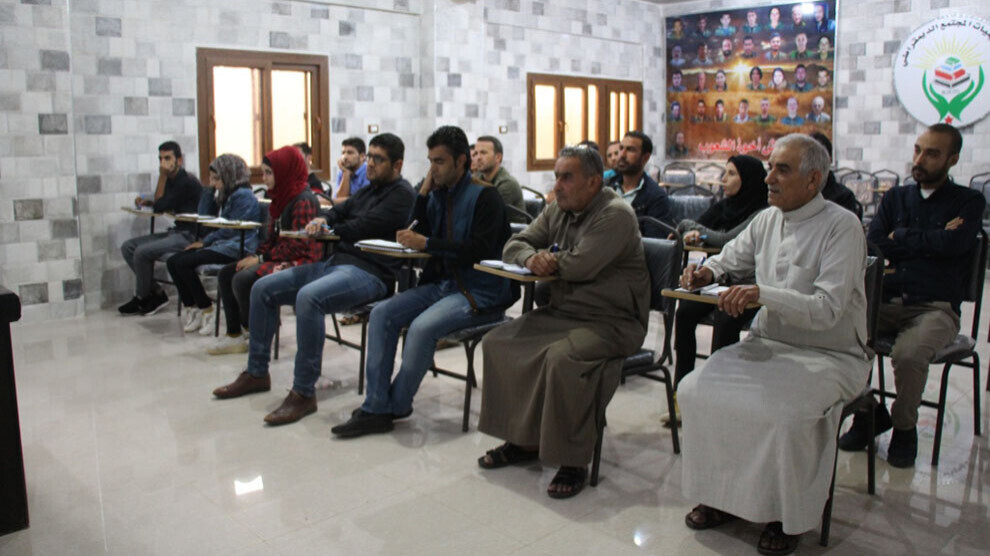Manbij has long been a thorn in the side of the AKP/MHP regime, as the city was the IS' bridgehead through which much of the supply of the self-proclaimed caliphate passed from Turkey. With the liberation of Manbij in 2016, Turkish Jihadist ambitions were dealt a severe blow. As a result, the AKP/MHP regime regularly terrorizes the city and surrounding villages with artillery attacks and attacks by MIT-controlled cell structures. Despite this permanent state of emergency, a flourishing self-administration based on the principles of democratic autonomy has developed in the northern Syrian region, which is predominantly inhabited by Arabs and Turkmens.
Manbij - Important symbol of the universality of democratic confederalism
Manbij is an important symbol of the universal functioning of the radical democratic concepts of Apoism. While the Kurdish population has long experience with the concepts of democratic autonomy and women's liberation, in Manbij they encounter a conservative-religious society. The fact that democratic autonomy is flourishing in Manbij, however, shows the persuasive power of the project.
Education is the key
Education plays a central role in building an emancipatory, democratic society. Therefore, academies are a decisive factor. The academies mainly train multipliers, who then transfer their knowledge to their councils and communes.
Since Manbij is the focus of the war, it is also an important task to counter Turkish propaganda. Thus, Turkey tries again and again to incite the Turkmen minority in its interest, but it has not yet succeeded in doing so because of the awareness it has created and the good work of self-administration.
One of the academies is the "Şehîd Ismail Musa Academy”. Mahmut Bekro from the academy's management says that the educational programs have brought about a significant positive change in life in the city.
800 people have participated in educational programs
The Academy was opened in October 2016. To date, 800 people have been trained there. Instead of quantity, the focus is on intensity of the educational programs. This means that in four years about 28 educational programs have been conducted. One training course lasts between twelve days and one month. The educational programs include courses such as "Building a New Society," "Fighting Special War," "Legitimate Self-Defense," "History of Women's Freedom Struggle," "Jineolojî" [Women’s Science] and "Democratic Nation. The head of the academy emphasizes that it is not about the accumulation of dead knowledge, but about the development of the personality of the individual. Through the development of the individual, society is developed.
"Our perspective on life has changed"
Abdulbasit Hussein participated in an educational program of the Academy in 2017. He is active in self-administration and says: "We had courses at the academy with both ideational and cultural references. In addition, they were about the true essence of life and everyday realities. In regime times such an education would never have been possible and we understood how urgently we needed this form of education. The courses on special war, legitimate self-defense and women's history have changed the way we look at life. This education we received at the Academy is of great benefit, especially for the coexistence of peoples and societies.”
In Manbij there is not only the "Şehîd Ismail Musa" Academy, but also several autonomous women's academies.














